#ok sorry back to your regularly scheduled Doc Stuff
Text
LFS STUDENT TIPS | Ju Shardlow
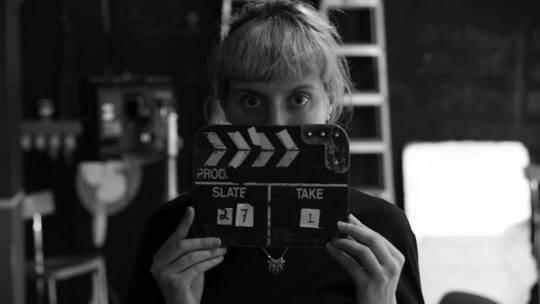
Photo Credit: Franco Volpi
Like many people in the industry, current London Film School (LFS) student Ju Shardlow graduated in a subject unrelated to film, doing journalism and literary jobs here and there for a year before finally deciding to go into film and TV. Shardlow will graduate later this year from The London Film School’s Masters in Filmmaking programme. "I'd done lots of theatre stuff at uni but there wasn't really any media studies, so I decided that I wanted to go and maybe get a work experience placement.” After doing exactly just that in a script production company, Shardlow went on to production runner, production assistant and then runner research assistant, working her way up the ladder.
During this time, she gained experience with organisations such as Hartswood Films, makers of SHERLOCK, while working at Teddington and Shepperton studios. "I got my first job with the BBC in 2012 on The Culture Show and worked there for three years or so as a junior researcher in documentaries. I was self-shooting, learning how to do camera work and then from that went to the LFS.”
Shardlow took time out of her extremely busy schedule to meet up with screenwriter Sophie McVeigh, who wanted to find out more about Sharlow’s journey to The London Film School, only to discover that she had many more strings to her bow than had been anticipated.
Sophie McVeigh (S.M): How did you go about getting your first work experience position?
Ju Shardlow (J.S): It was weird actually because I got a message from my sister saying there was someone from a TV production company at a house party and I was in bed! She was talking about how she couldn't find an intern so I got out of bed, got dressed and then I went to this party at midnight and was like, “Hello, nice to meet you!” There's a way of doing it, [with] that eagerness, instead of assuming that you deserve something.
S.M: How did you go from that to paid positions?
J.S: I got into quite a small development company and then from that you have to just make yourself really invaluable. I'm quite proactive, so I created a role for myself there. Anyone who is averse to making teas and coffees, sorry - give up and go home. And then within that network of research and directing and producing at the BBC, everybody knows each other if you go from project to project. So I think I did 11 shows back to back with the BBC without taking a break. I must have been at home for a week before I got a phone call saying “Would you like to come down for this production?”
S.M: What made you decide to come to LFS?
J.S: With the BBC you can work there for two and a half years before they make you permanent staff. So they're encouraging you to either go freelance or come back on a directors level. I basically wanted to do bits of the production side of it and self-shooting but I realised that I didn't really know as much about cameras and planning my own shoots as I thought I did. So I wanted to go and learn more of the technical side of things. I never came to LFS to be a fiction director. It was always to come and learn how to effectively light and create my own set ups so that I could go and self-shoot.
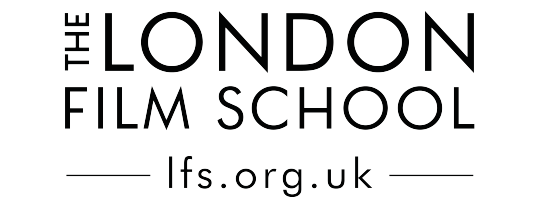
S.M: What would you say is the most valuable thing that you've gained from your time at LFS?
J.S: Knowing how to manage personalities is really important. People come from all over the world with all of their different backgrounds in film. Also, for work, generally when I show up to places to go and film, it will be, like, ten men from different major press organizations: CNN, the Guardian, ITV, Press Association, Vice. There are very very few female camera operators in the British press. But at LFS there's an approach of equality of opportunity in gender amongst the students. It's a really refreshing thing to see. You realise that there are loads of really capable women and some of them are better than the guys a lot of the time as well.

S.M: You've also started your own production company …
J.S: It's a small production company, me and my friend from university and also an editor friend. Julia Hart and I just recently shot in East London for a week, and then we give them to Trace, she's a professional editor with years of BBC experience... It's kind of a mixture between NFTS, LFS, [and] our VFX person is someone from the BBC. The film we shot this year was called KID GLOVES, but the one that's probably done the best was EMMA, CHANGE THE LOCKS, which was last year. That's now screening in the BFI Future Film Festival.
S.M: Starring Olivia Williams. How did she end up getting involved?
J.S: She became became involved through the director. So effectively it was a mixture of professionals, new people and the students at NFTS. I wish, actually, that I'd shot that after I'd been to LFS so I could understand what all those grip clamps were, and what the sparks do, things like that. Having a knowledge of all those roles through being at LFS definitely helps you as a producer.
S.M: How did you go about making contacts outside of the LFS while you were studying?
J.S: I think it was just persistence! I must have gone the whole summer before I applied to LFS just sending my CV off 20 times a day to places and not getting anything. Just constantly trying to pick up with older connections. I was sending it to development and production companies. I was contacting those people to see if they knew anybody and asking them to keep an ear to the ground, “Even if you need anybody to come along for free for a day.” I drove up to Birmingham for a day to second camera a BBC documentary while studying. I was driving back with a million pounds of camera equipment back through Oxford Circus then getting up for Term 1 the next day.
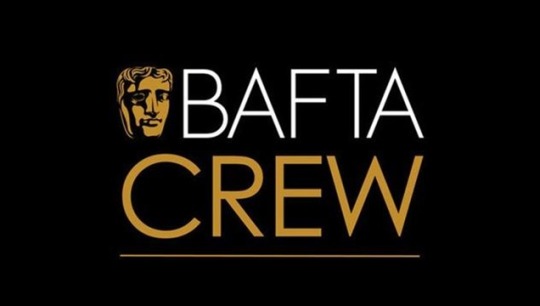
There are a couple of really good networking things as well. Like BAFTA Crew that I got involved in through working in TV. That's an amazing networking opportunity. Women in Film and Television have a really good networking group. More recently for women: Organisers for Gender Equality in Film, Women on Docs, Feminist Film Collectives. Don't let anyone bash you for all-female crews or networking societies. They're likely to be the same people that ask "Why isn't there an International Men's Day?" You do honestly meet people. Sign up to loads of stuff in London and don't be ashamed to contact people back.
S.M: How does BAFTA Crew work?
J.S: If you have a certain number of TV and film credits and you've worked in the TV industry for a year to two years then you're eligible to apply and they select 200 people a year, across programming, development, game making, research, camera work, everything. And you can apply for a specific strand – I went in for camera operating and production management. Effectively it's open access to loads of master classes, workshops, talks and lectures from BAFTA professionals. And they have drinks after which is a really good place to meet people! If you go on the BAFTA website and sign up to any of their events and talks, they have events all through the year.
S.M: You're using Kickstarter at the moment to help fund 23 BLONDE. How's that going?
J.S: We're going to use it for post production. I think LFS does a Kickstarter course in term six which I’d recommend everybody goes to because Kickstarter is going to be so important for people, especially for their graduation films. A lot of people use it but in a half-arsed way just thinking that friends and family will give them money and that that is its limit. There was someone who graduated a couple of years ago called Christine Sherwood who is an amazing producer and is really good at all that social media strategy, fundraising and Kickstarter. She basically told me to get on stuff as early as possible and create a buzz around your film before you do it, so you already have pitches, you already have footage, quotes, you've already made your press pack, things like that, so that when you go into Kickstarter you can be like: “We've made this and we're going to raise money for post-production, this is how professional it looks.”
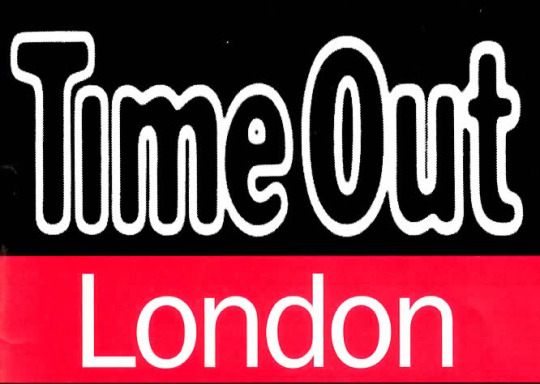
S.M: And you've recently started working for Time Out…
J.S: I'm video producer at Time Out. I basically commission, produce, shoot and edit video content. I've been there for 6 months and it's growing rapidly. We had 11 million video views this month, and have been nominated for a media award in New York with really big players like Time, National Geographic and Condé Nast. They wanted somebody who had demonstrated the ability to go and shoot and do camera work but also had the producer side. I think definitely writing down all those camera skills from LFS, saying that you can operate all those cameras and that you've been on this many shoots, made them say “Oh OK. You can do this amount of work because we know that (the course) is quite hectic,” as well as a knowledge of London, which Documentary Term 3 at least forces you into having, and the ability to throw yourself into unpredictable situations with little planning.
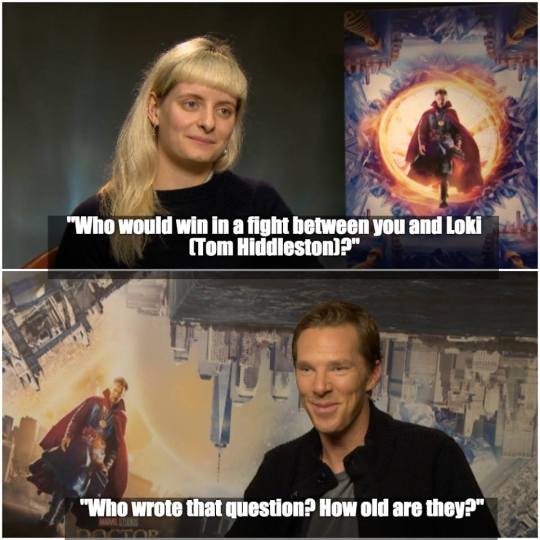
S.M: You're also working with Facebook Live. Could you tell us about that?
J.S: Facebook Live is something that we occasionally use at Time Out. You can do it over your phone or with a plug-in to an ENG camera. I've interviewed some really interesting people though: the Star Wars cast, Benedict Cumberbatch, Louis Theroux, Sigourney Weaver, Bill Nighy…
Facebook and Instagram are really big platforms for video and they're really accessible content. Look how big Instagram stories is becoming. In 2017, 85% of Americans will get nearly ALL their news content from Facebook - that's terrifying but it also gives you a responsibility. We live in an era of fake news, glib reporting and cat videos, but also one where people regularly rely on informing themselves of today's world via video. Even if you make a short fiction or documentary at LFS, you are projecting something you feel is necessary for the world to know in a video format: gender issues, social mobility, loneliness, crime. What I do is just another extension of that: making something entertaining yet informative, and digestible. For a lot of the profiles and news videos we're telling stories with the camera in 30 seconds, for which I always think of LFS staff Peter Gordon or Jaime Estrada-Torres going "What shots are necessary to tell your story?!"
Click here for an example of Shardlow’s work for Time Out London.
Interviewer: Sophie McVeigh
#when alumni convene#timeoutlondon#facebooklive#work experience#production company#bbc#producer#bafta crew#kickstarter#filmmaking#timeout
0 notes